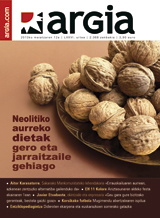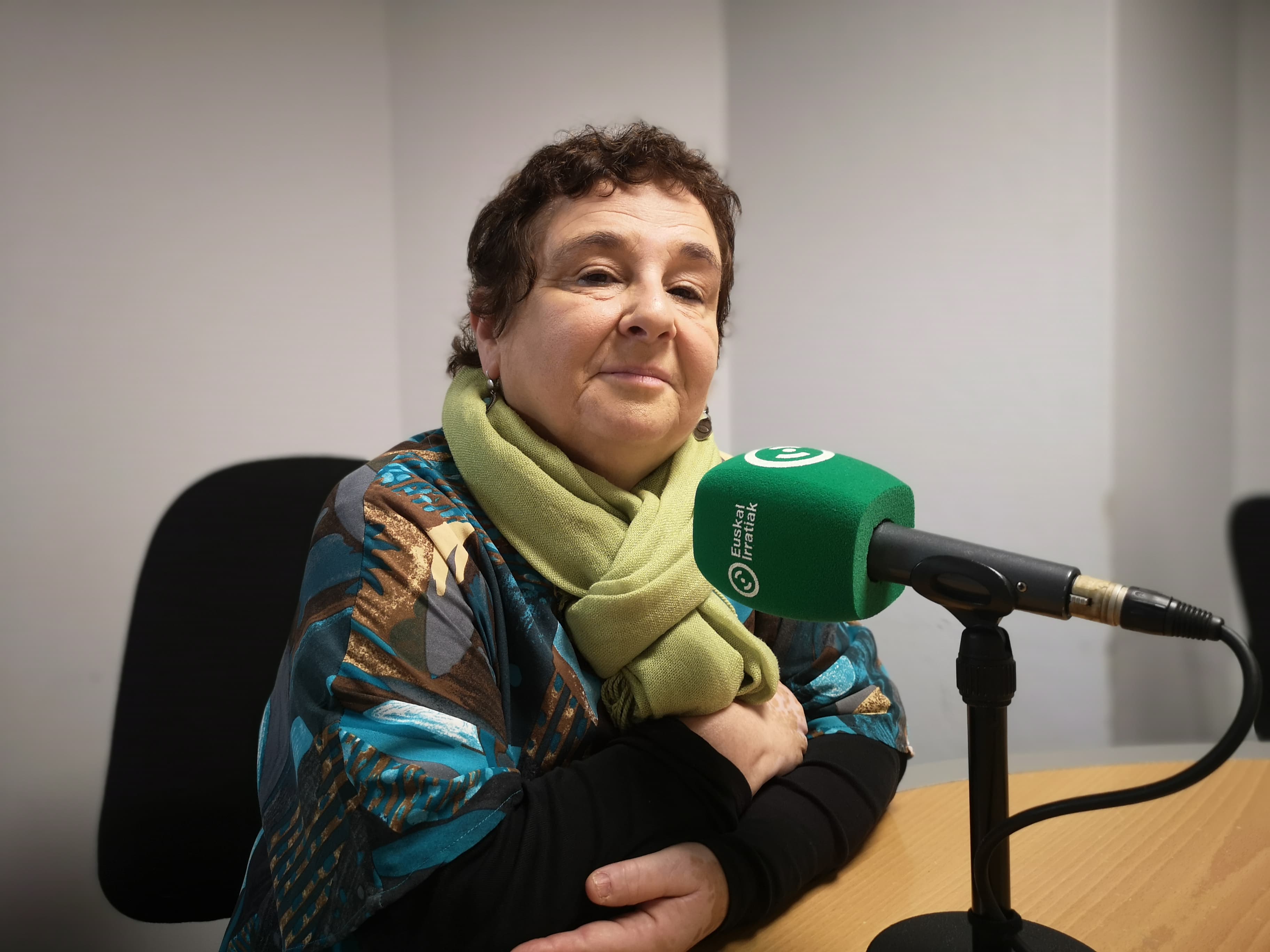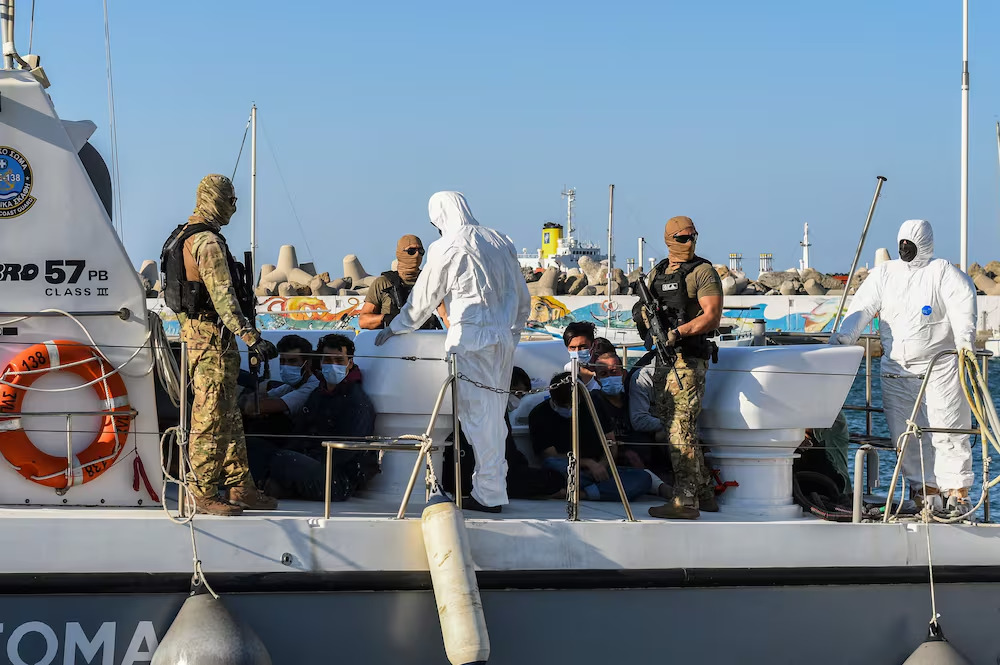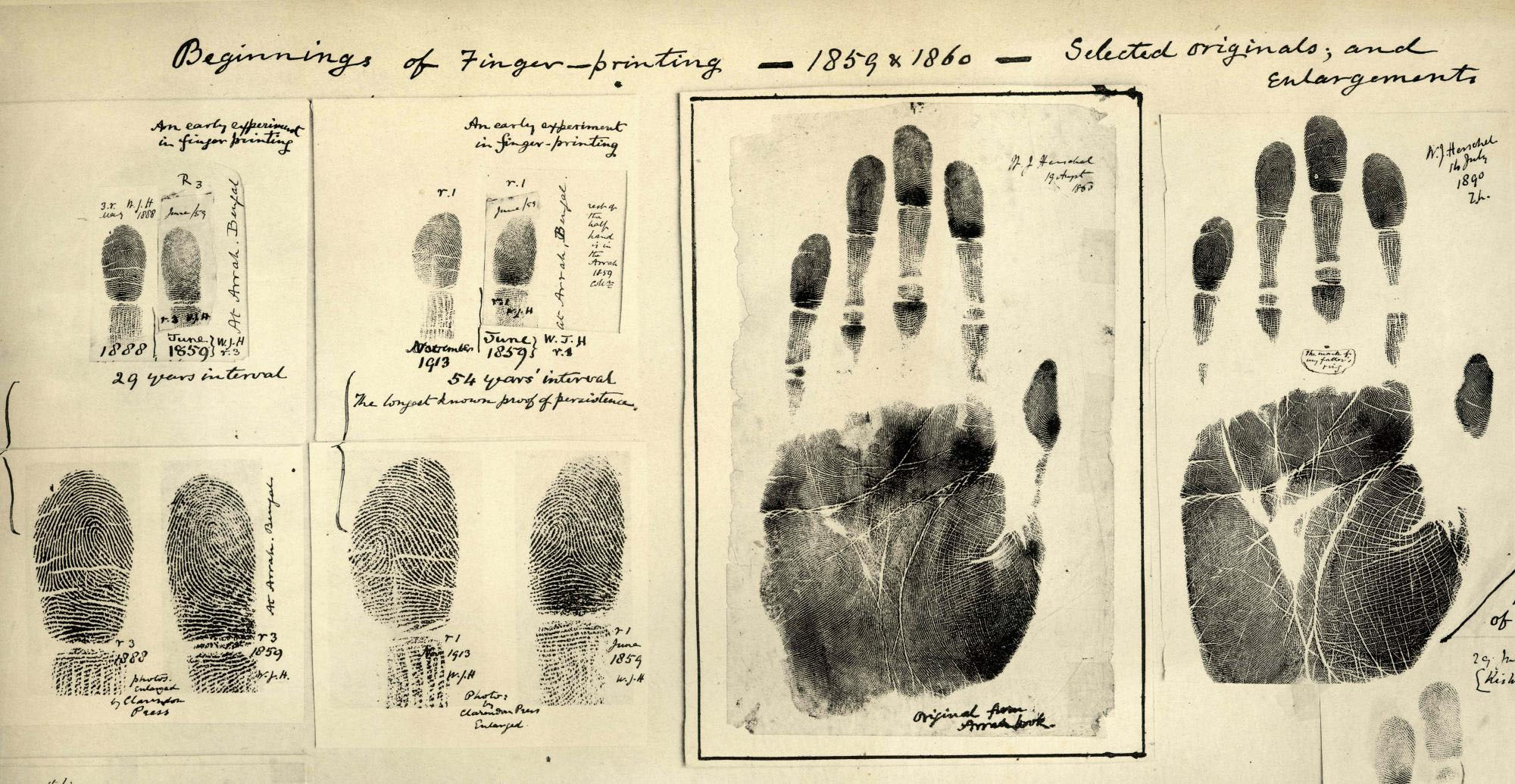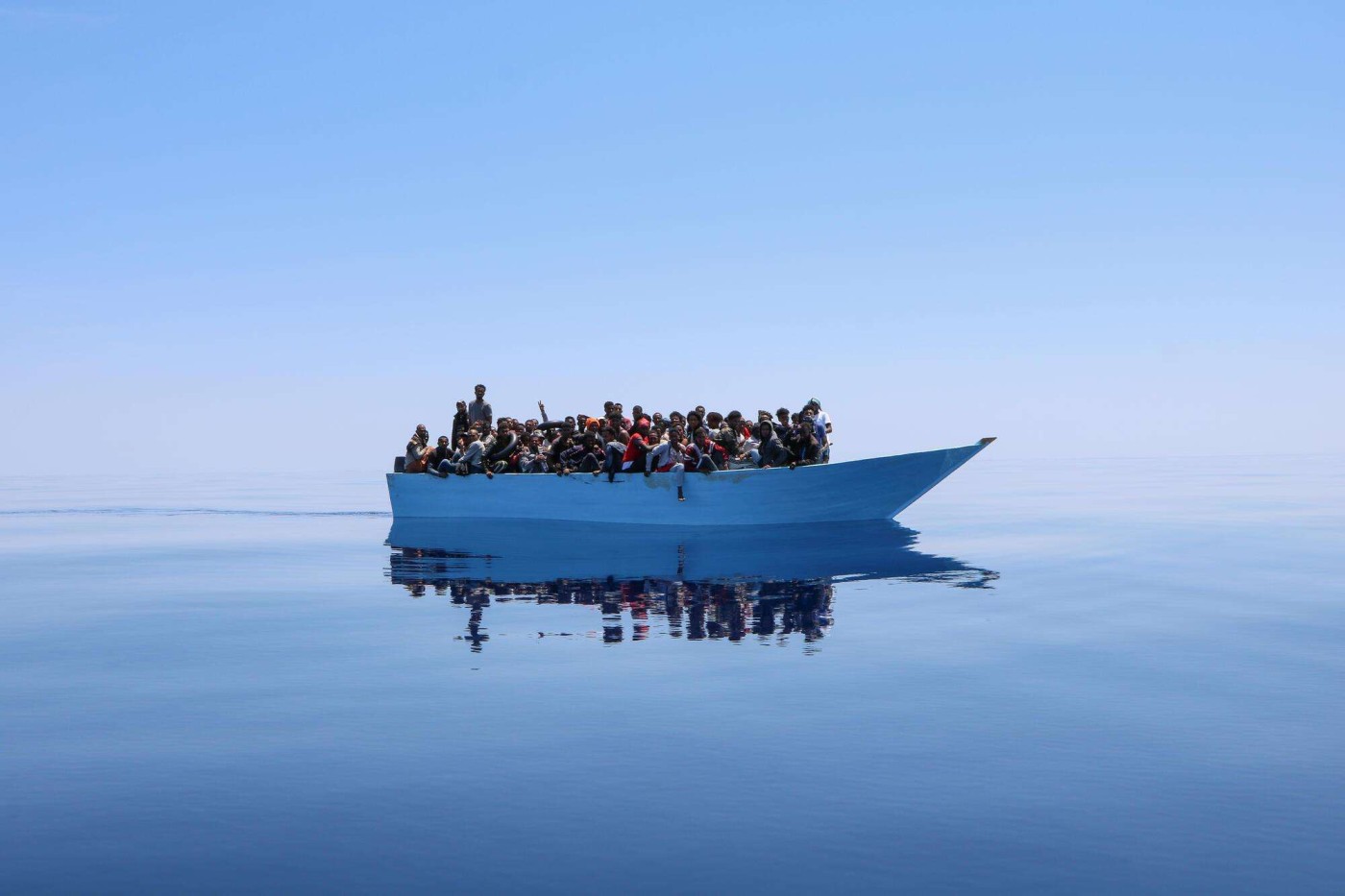Construction of bridges
- The Basque society is plural in culture, language, origin and ideology. And although this has always been the case, we have not managed this diversity or given a satisfactory answer, according to EH 11 Kolore. That is why the initiative is born, with the aim of promoting the debate on diversity and building a network that links citizenship.
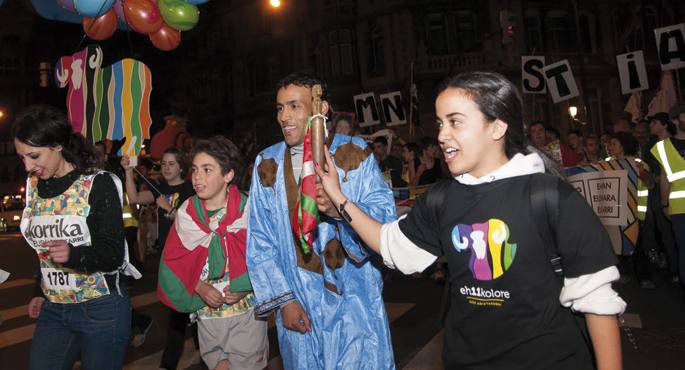
The EH 11 Kolore initiative is the result of discussions that began a year ago with people working in different areas related to diversity. It was presented in December last year and for the next 1 June they have organized a big party: Diversity Day.
Basque Country
The initiative spokesman, Xabier Mendiguren Bereziartu, stressed that we have long been a plural people. There is often a tendency to relate diversity to newcomers, but in their opinion we should stop making that correlation. In fact, Euskal Herria has always been composed of people from different backgrounds. EH 11 Kolore wants society to understand diversity as a positive value. In order to do this, it is essential, first of all, to respect the same and the other. From there, to build bridges between each other.
The fact that the Basque Country is divided between two states and that it is a stateless people gives our situation its own characteristics. On the one hand, because we don't have the capacity to manage diversity. On the other hand, the internal migratory tendencies of the states have a great influence on the sociocultural reality. In Mendiguren's view, there is still a great hole there, as it has not been possible to stick to the character of all Basque cultures and languages. It's been a long time since we've had to work and build those bridges with many of those who are here.
Mendiguren gives examples of Roma: “They’ve been among us for a long time, but we often don’t belong to our diversity.” He also referred to the peculiarity of South Americans with the current situation. Those who come to Hego Euskal Herria, as they can communicate in Spanish, often do not see the need for Euskera. In addition, there are those who “do not know that there is another culture or another language here and therefore we should start with a good welcome”. The others also easily forget that many of the immigrants have their own languages in their homeland and that the ancestors of the Basques had something to do with their persecution. “In this sense, we can do a lot to help the culture and language that disappeared in their day with the help of the Basques get out of the deficient situation that they live.”
According to Mendiguren, before establishing cultural exchanges, “it is essential that all citizens feel comfortable.” If a person does not have his basic rights guaranteed, among other things, he cannot find a way of life and if housing and health are limited, it will be difficult to make progress in living together. Therefore, the first step is to identify and meet urgent needs. Then, according to the spokesman, “we want to convey that living and building among all in Euskal Herria is possible and attractive.”
The crisis tends to accentuate intolerant and racist attitudes in society. Mendiguren does not believe that in the Basque Country, in general, there is a risk of such a response. Media labels are more worrying. In their opinion, they stigmatize immigrants and people from different backgrounds, as they do not use the same terms for each other. EH 11 One of Kolore's fundamental principles is to be inclusive. We have to break the dichotomy ‘they’ and ‘us’, because diversity does not oppose us.
Euskera as a landmark
The strategic objective of the initiative is the construction of a plural and forward-looking Basque society. In this dream society, Euskera and Basque culture would play an important role. Because EH 11 Kolore wants these to be the bridge between all and all, connecting all of us who live in this territory and, why not, the Basques who live abroad. Mendiguren believes that an unbalanced situation in the Basque Country will force him to give local responses. For example, “for those who want to learn it will be easier to learn in the Goierri than in another more castilized area”. Therefore, while the Basque country wants it to be a milestone, policies cannot be unified, it needs to be adapted.
Sharing the Basque language does not mean that the languages of origin have no place. Technology makes it possible to engage with everyone and, as far as possible, people who wish to develop their mother tongue should be helped, according to the initiative.
Network and debate as an objective
From the outset, they have called for the support of as many people as possible, both individual and collective, institutions, political parties, trade unions and social partners. A network that works for diversity will be built between all and all. After analyzing the opinions, desires and needs, Mendiguren has pointed out that “the time will come to search for concrete projects and the path that corresponds to them”. But he has insisted on the need for the debate to take place "with total normality". It therefore hopes that as many people as possible will join this dynamic of plurality. In short, the more people are part of the network, the more varied it will be.
In the framework of these purposes, the Diversity Day will be held in Donostia on 1 June, and for this purpose they have organized 11 Kolore Fest. Among other things, drums for diversity and pintxos tastings from different backgrounds will be carried out, which will merge the city's customs with diversity. The spokesman explained to us that the Gipuzkoan capital has been chosen for several reasons: it is a very plural city and more than 120 languages are spoken. In addition, it has been elected European Capital of Culture for 2016, in which they want diversity to play an important role. But above all, because this year marks the 200th anniversary of the burning of San Sebastian. With these facts of 1813, EH 11 Kolore wants to imply that “this coexistence that did not occur at that time is now possible”.
Sara Mchichou: "The fact of being a Basque Muslim is not considered to be common"
Sara Mchichou is a 20-year-old oñatiarra living in Oñati (Gipuzkoa). Born in Tangier, she studies Chemical Sciences. He is a member of the Islamic Basque Council that joins the EH 11 Kolore initiative. We have received your opinion on the welcome that the project has had.
When and how did you get in touch with EH 11 Kolore?
It's been something that happened a few months ago. We in the Islamic Basque Council believe that this is a good opportunity to work together on immigration and diversity and to do something new. It allows us to join other organizations and work together for equality.
Are there any initiatives that work on diversity?
Yes, of course, it is essential. In the Basque Country there are many foreigners and they are often excluded because they are foreigners. For example, the Islamic community works with the Islamic Basque Council, and the aim is to promote and integrate the Basque Country without losing our Arab roots. Despite the fact that globalisation is increasingly widespread, there is still a great lack of knowledge of external beliefs, religions, races and cultures. It is therefore necessary to accept the other as it is and to extend the personal perspective to wider areas in order to be able to live together in a comfortable environment. Also for the construction of a diverse Basque Country.
What help EH 11 Kolore?
Knowing people from other countries, sharing experiences and learning from difference.
How do you see diversity in Euskal Herria? Is awareness necessary?
Diversity helps to see the world differently. Knowing the culture, the experiences and the thoughts of others, leads us to understand our way of life differently. But it has to be borne in mind that in the twenty-first century, not all ethnic, cultural and religious identities have the same social and political recognition. Some of these identities are accepted in society, others not so much. For example, the fact of being a European Muslim or a Basque Muslim is not considered common, although the number of Muslims grows in many places in the Basque Country. Awareness is needed, it's time to get out of the bubble.
What role should Euskera and Basque culture play in diversity?
Euskera is the language of the Basques. As the word says, the Basque makes us Euskaldunes, and the one who speaks and lives in Euskera will be Euskaldun. Language is a big part of our identity. Individual identity is built, among other things, by experience, religion and culture. We cannot decide where we are born, nor what our mother tongue is, but what we learn and use. In this context, the Basque Country is an essential tool for its integration. The more the language is known, the more possibilities the speaker will have.
"Segurtasun gehiago, inmigrazio gutxiago". Bruno Retailleau barne ministro frantsesa argi mintzatu da, kargua hartu berritan. Etorkinen gaineko kontrola azkartu nahi du Michel Barnier lehen ministro eskuindar-kontserbadorearen gobernuak, eta jada Retailleauk aitzinatu... [+]
Europar Batasunean berriki onartu den Migrazio Itunak, asko zaildu dizkie gauzak euren herrialdetik ihesi doazen eta asiloa eskatzen duten pertsonei. Eskuin muturraren tesiak ogi tartean irentsita, migratzaileentzako kontrol neurri zorrotzagoak onartu dituzte Estrasburgon,... [+]
Migratzaileen kopurua anitz emendatu da Irun eta Hendaia arteko pasabidean. Irungo Harrera Sareak ohartarazi duenez, otsailean 600 pertsona lagundu dituzte, iaz, urte osoan 2.700 izan zirelarik. Iragan urtarrilean, 2.700 etorkin heldu dira Kanariar Uharteetara, egunero 80... [+]







